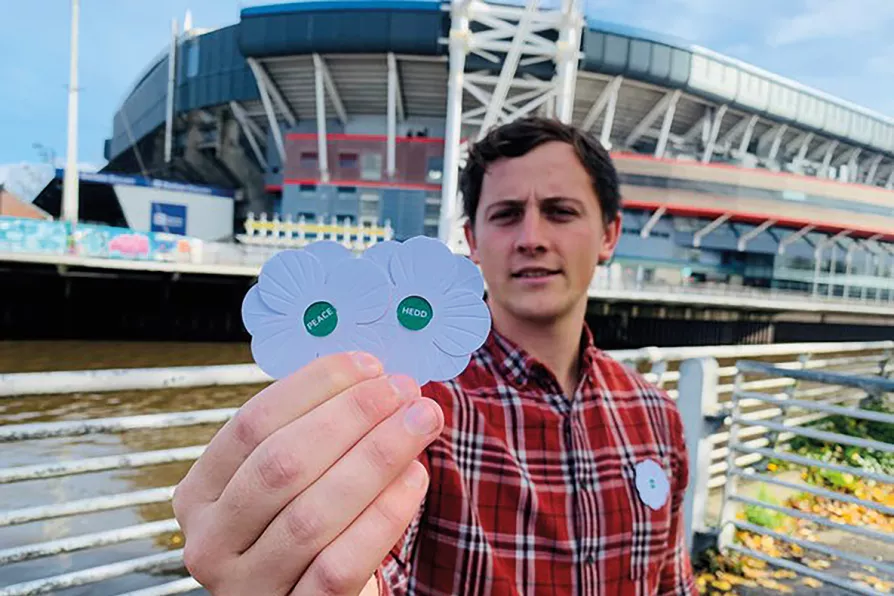The far right thrives on division, but denying racism within the left only strengthens it. As we mobilise for the All Together March, real solidarity demands honesty about our own failures, argues ROGER McKENZIE
Why young people are standing up to militarism – with a white poppy
Faced with injustice and insecurity, wearing a white poppy challenges the prioritisation, normalisation and justification of militarism, argues NADJA LOVADINOV

 COMMITMENT: Rhun Dafydd, chair of Cymdeithas y Cymod (the Fellowship of Reconciliation in Wales), holds up white poppies in both Welsh and English in Cardiff (below) students at Sheffield University take non-violent direct action against militarism on campus in October this year
COMMITMENT: Rhun Dafydd, chair of Cymdeithas y Cymod (the Fellowship of Reconciliation in Wales), holds up white poppies in both Welsh and English in Cardiff (below) students at Sheffield University take non-violent direct action against militarism on campus in October this year
IN THE last month alone there have been anti-militarist protests in at least four British universities. Students at Warwick, Sheffield, Lancaster and Nottingham have challenged their universities’ links with the arms trade.
With British military spending passing £50 billion in 2021, and likely to increase even further, young people are reacting in anger. The post-Covid world has rejected the presumption that young people are apathetic and don’t care about politics.
Rather, we are globally conscious citizens. This year, in the run-up to Remembrance Sunday, we should wear white poppies as a symbol of remembrance and rebellion and support for issues we care about.
Similar stories

By honestly telling Ukraine that it will not become a Nato member, Trump and Hegseth have opened the door to a possible end to the conflict but have also altered the political dynamic on both sides of the Atlantic, write MEDEA BENJAMIN and NICOLAS JS DAVIES













